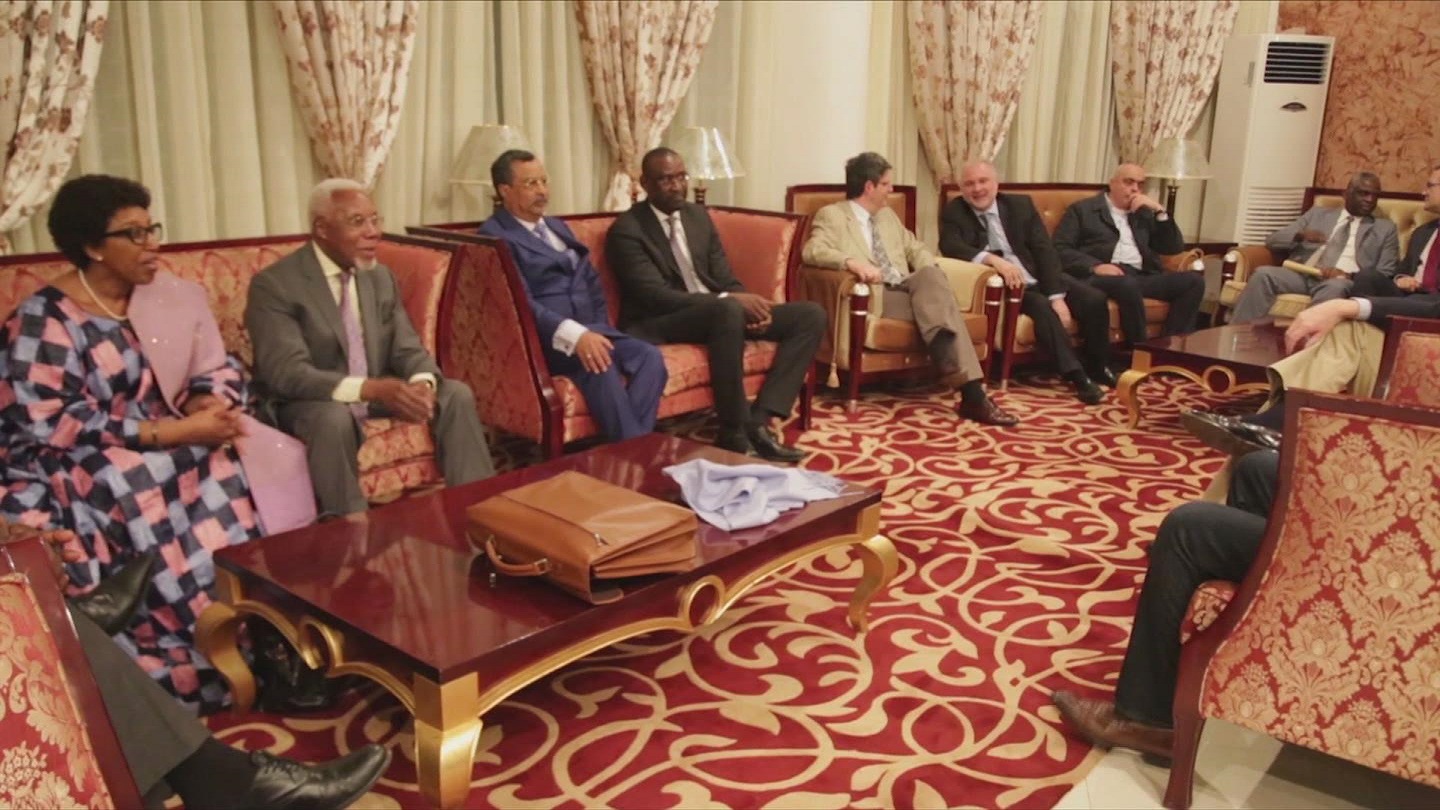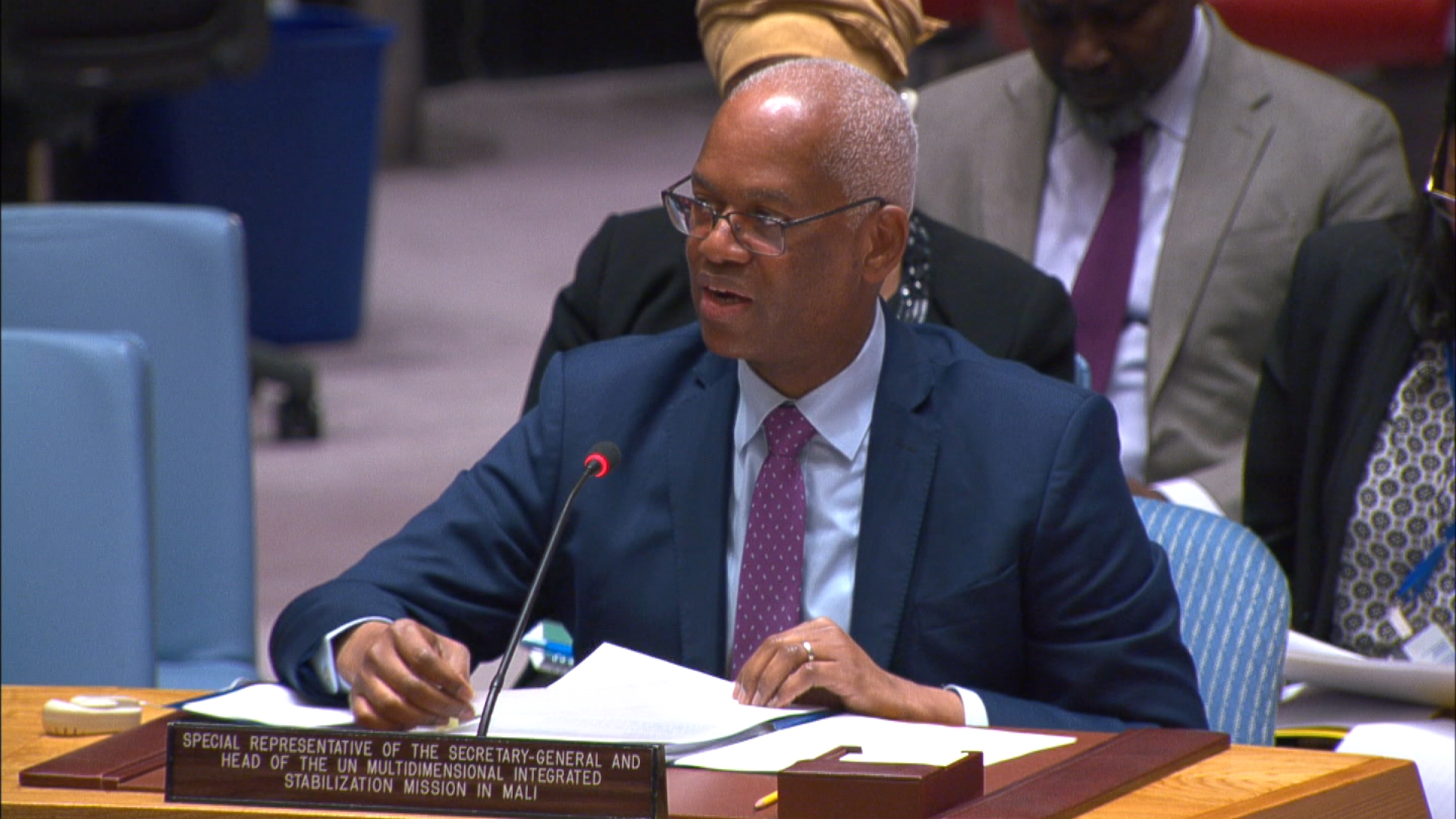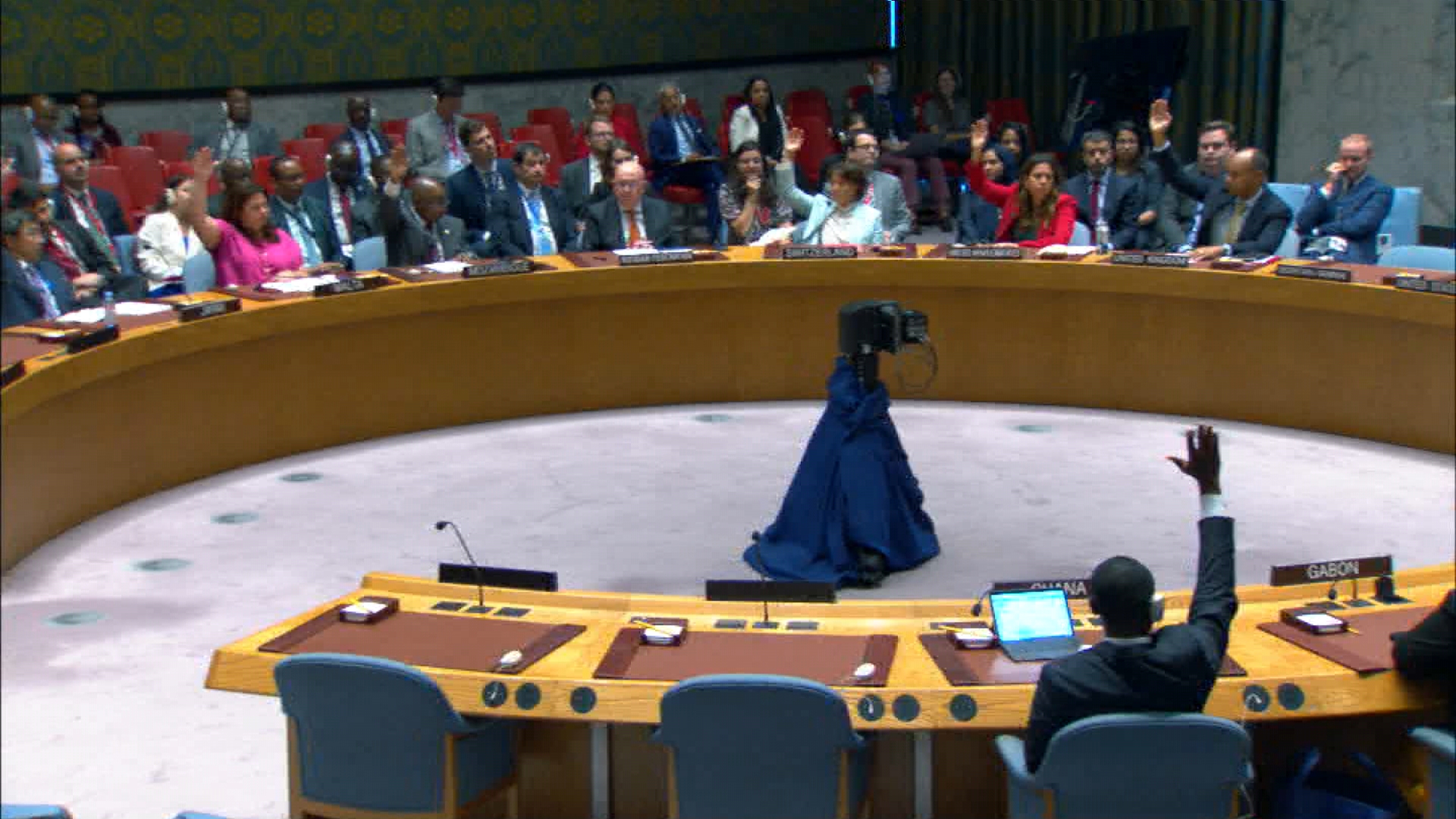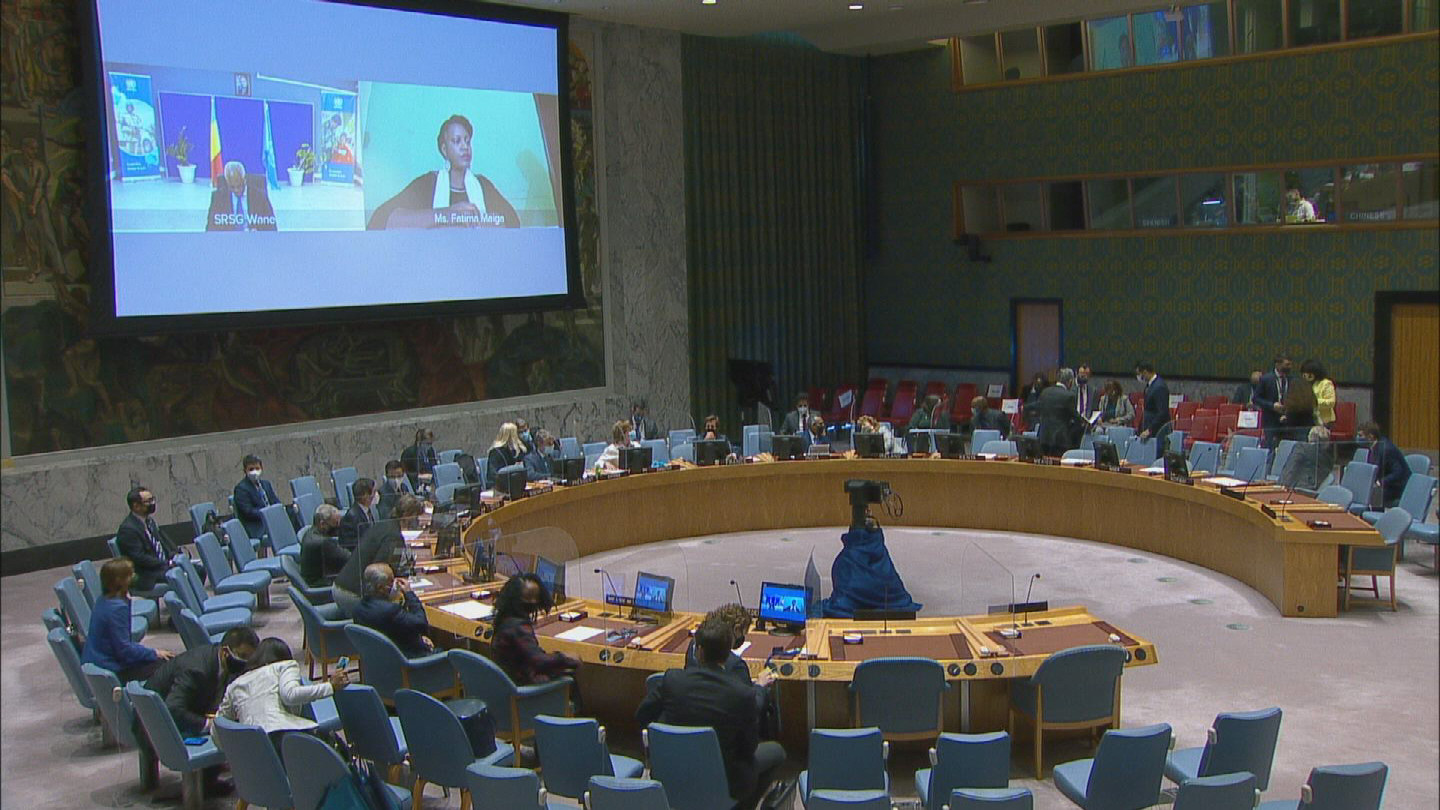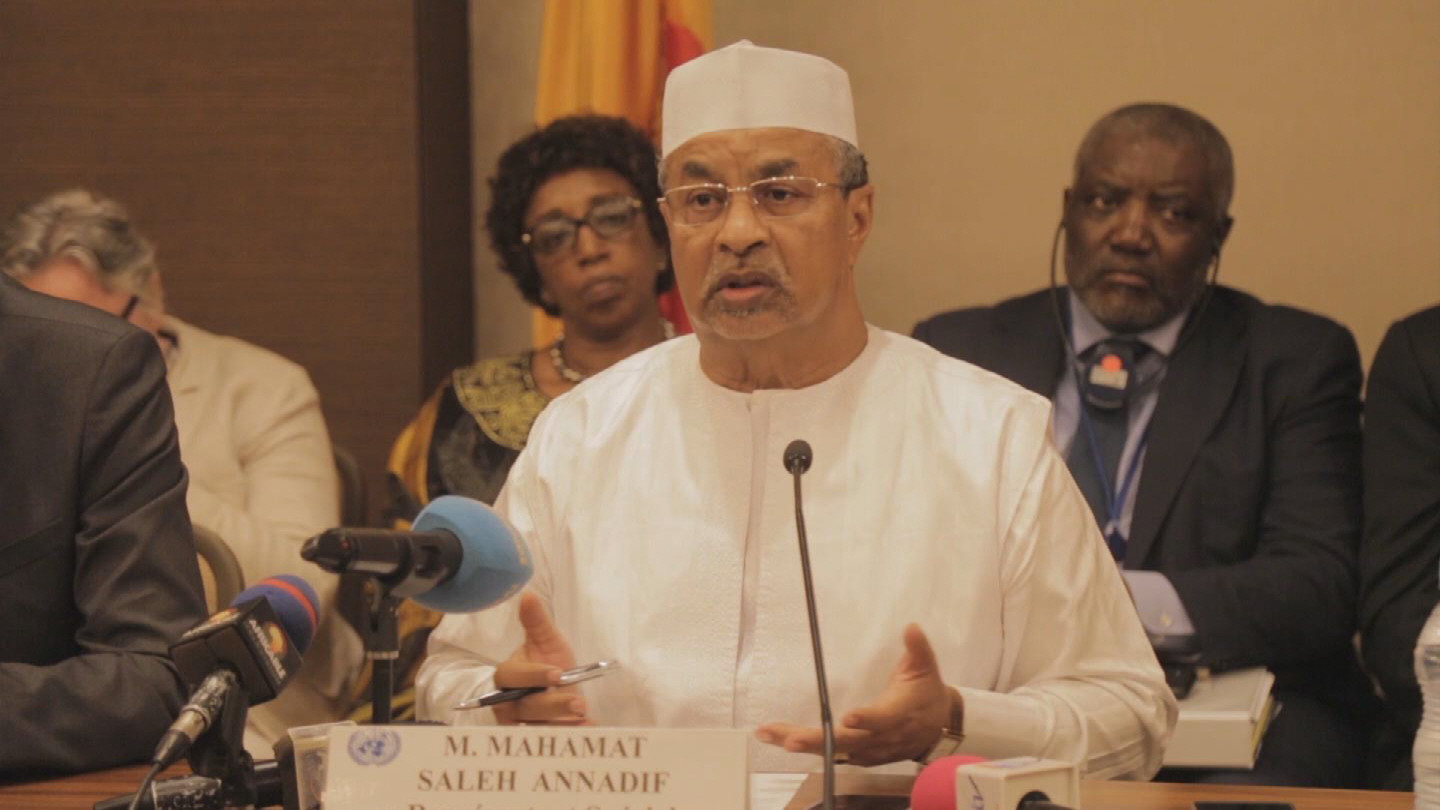UN / MALI
Download
There is no media available to download.
Share
STORY: UN / MALI
TRT: 02:49
SOURCE: UNIFEED
RESTRICTIONS: NONE
LANGUAGE: ENGLISH / FRENCH / NATS
DATELINE: 06 APRIL 2017, NEW YORK CITY
FILE - NEW YORK CITY
1. Wide shot, UNHQ exterior
06 APRIL 2017, NEW YORK CITY
2. Wide shot, Security Council
3. SOUNDBITE (French) Jean-Pierre Lacroix, Under-Secretary-General for Peacekeeping Operations, United Nations:
“This lack of clarity on the institutional framework hinders efforts on the ground and does not contribute to a climate of trust between the parties. Such a situation favours the fragmentation of the security and political landscape and further complicates our work for peace. To this end, it is more important than ever for MINUSMA to vigorously pursue its political role and its support for the peace process.”
4. Pan left, Security Council
5. SOUNDBITE (English) Jean-Pierre Lacroix, Under-Secretary-General for Peacekeeping Operations, United Nations:
“We need to address the scourge of international and transnational organised crime and its impact on the peace efforts. On this particular aspect, the Security Council has already expressed its intention to consider targeted sanctions against spoilers. We believe it is time to consider establishing such a sanctions regime.”
6. Wide shot, Security Council
7. SOUNDBITE (French) François Delattre, Permanent Representative of France to the United Nations:
“The time lost by the Malian parties signatory to the agreement was gained by the terrorist groups. The expansion of terrorist attacks in central Mali is an illustration of that, and inversely, the redeployment of the State presence in the north as provided by the peace agreement will provide hope for the people for peace. The implementation of the peace agreement would demonstrate to everyone, and especially the unemployed youth in the north, that the path of terrorism and drug trafficking is a dead-end.”
8. Wide shot, Jean-Pierre Lacroix
9. SOUNDBITE (English) Abdoulaye Diop, Minister of Foreign Affairs, Mali:
“The goal of the heads of state of the G5 of Sahel is not to become involved in an endless war. We are aware that by having this combat against terrorism will end up with an environment which will be more conducive to MINUSMA to carryout its mission and we are fully aware that by doing that we are solely to engaged in the bounds of the implementation of the peace and reconciliation agreement in Mali.”
10. Wide shot, Malian Foreign Minister at stakeout
11. SOUNDBITE (English) Abdoulaye Diop, Minister of Foreign Affairs, Mali:
“The UN only cannot stabilize the situation in Mali. There is a need first to strengthen and support the Malian security and defence forces, and the second also, to collaborate and support the regional initiative aiming to tackling the insecurity in our region. So, we look forward to working with the new US administration to stabilize this country and we know their interest in the fight against terrorism. Mali is also facing similar challenges.”
12. Zoom out, Malian Foreign Minister leaving stakeout
In his first address the Security Council as peacekeeping chief, Jean-Pierre Lacroix told the Security Council despite the positive progress in the past few months in implementing the Malian peace agreement, the slow progress in security reform “does not contribute to a climate of trust between the parties.”
Presenting a report today (06 Apr) on the situation in the West African country, Lacroix said as the 2018 elections approached, the substantial delays in implementing the peace agreement and the fragility of the gains made could not be ignored. He noted that the integration of combatants from the signatory groups in national forces had not yet been determined and this “lack of clarity on the institutional framework hinders efforts on the ground.”
Lacroix expressed concern for the security situation in the country as attacks by terrorists continued and were increasingly sophisticated. He said ISIL was slowly making an appearance in the country in areas where the State was weak and the implementation of the peace agreement still had not translated into tangible results. He added that cross-border criminal networks remained very active as the revenues generated from illicit trafficking are a financial boon for terrorist groups operating in northern Mali. Lacroix applauded the Sahel’s group of five (G5 Sahel) for its effort to establish a regional force. Lacroix stressed the need to address “the scourge of international and transnational organised crime and its impact on the peace efforts” and recommended the establishment of a sanctions regime that targets “spoilers.”
French ambassador François Delattre the situation in Mali remained fragile as a sinister competition between Al Qaeda and ISIL was ongoing. He said the time lost by the signatories of peace agreement “was gained by the terrorist groups.” He said implementing the agreement would “demonstrate to everyone, and especially the unemployed youth in the north, that the path of terrorism and drug trafficking is a dead-end.”
Malian Foreign Minister Abdoulaye Diop said much progress had been made since the beginning of the year. He said the National Understanding Conference held in the country’s capital Bamako last week gave an opportunity to the sons and daughters of the same country to speak frankly and was totally inclusive. Diop said one of the major challenges to the implementation of the peace agreement was the attacks of terrorist and extremist groups, as well as traffickers against the civilian populations, Malian security forces, international forces, and also signatory parties of the peace agreement.
The Malian Foreign Minister hoped for the Security Council’s support for the deployment of the G5 Sahel force which he said would be complementarity to the United Nations mission (MINUSMA) and the French Barkhane forces. He stressed that the goal of this proposed force was “not to become involved in an endless war” rather it would work “in the bounds of the implementation of the peace and reconciliation agreement in Mali.”
Asked by a journalist after the meeting whether he was worried the US would cut MINUSMA’s budget, Diop said US ambassador Nikki Haley only referred to a need to review the mandate, to equip the mission, and adapt it to the context. He said the US, among other members of the Council, were mindful that the UN only could not stabilize the situation in Mali adding that there was a need “first to strengthen and support the Malian security and defence forces, and the second also, to collaborate and support the regional initiative aiming to tackling the insecurity” in the Sahel region. Diop said he looked forward to working with the new US administration “to stabilize this country and we know their interest in the fight against terrorism; Mali is also facing similar challenges.”



